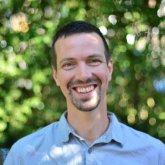Postdoctoral researcher EU-Concerto project
The University of Twente wants to be an organisation that effectively deploys diversity, talents, and capabilities in the labour market for now and in the future. In the framework of our diversity and inclusiveness policy, we strongly stimulate people with a (work) disability to apply for this position.
The University of Twente is committed to providing a working environment where everyone is valued, respected, and supported to progress. Our priority is to ensure that no one is disadvantaged based on their ethnicity, gender, culture, disability, LGBTQ+ identities, family and caring responsibilities, age, or religion. We encourage everyone who shares these values to apply.
Are you ready to join our team and together improve our understanding of terrestrial ecosystem carbon uptake on Earth?
The Earth has become greener as a result of increasing carbon dioxide concentrations in the atmosphere, and the carbon uptake by the vegetation has also increased. Will that process continue, how does vegetation adapt to climate, and what is the role of disturbances such as fires, floods and droughts? And how can we best use satellite data in combination with Earth system models? In the CONCERTO project we work with scientists from institutes in Europe to answer these questions. The University of Twente focuses on the use and interpretation of satellite data, with emphasis on the upcoming FLEX satellite mission.
As researcher in our team, you will have three main tasks in this project, each in collaboration with other institutes. The first is to help improve long-term global land cover maps with satellite data. The second one is to support Earth system modellers with tools to use satellite data of solar induced fluorescence (SIF) and other satellite data, by using and improving radiative transfer models. The third task is to develop theoretical knowledge about the response of photosynthesis to weather, climate and disturbances, using satellite data, the p-model developed at the Imperial College London and the model SCOPE developed at the University of Twente.
In short, this position provides an outstanding chance to work with satellite data and collaborate with European research scientists who work on quantifying ecosystem dynamics and climate projections.
Information and application
For more information about the position, please get in touch with Christiaan van der To (email: c.vandertol@utwente.nl). You are also invited to visit our homepage (www.itc.nl).
Please submit your application before 1 May 2025. Your application should include:
- A motivation letter (maximum 2 pages of A4), emphasizing your specific interest, qualifications and motivation to apply for this position
- Curriculum Vitae, including the names of two academic references
- A short description (150 – 250 words) of your PhD research
Short-listed candidates will be invited for interviews (either on-site or online).
About the department
The Department of Water Resources (WRS) of the University of Twente studies water systems and their relation with land use and climate through remote sensing, field instrumentation and modelling. We aim at capacity building of communities of water professionals, scientists and engineers that work toward a sustainable and resilient living environment.
About the organisation
The Faculty of Geo-Information Science and Earth Observation (ITC) provides international postgraduate education, research and project services in the field of geo-information science and earth observation. Our mission is capacity development, where we apply, share and facilitate the effective use of geo-information and earth observation knowledge and tools for tackling global wicked problems. Our purpose is to enable our many partners around the world to track and trace the impact – and the shifting causes and frontiers – of today’s global challenges. Our vision is of a world in which researchers, educators, and students collaborate across disciplinary and geographic divides with governmental and non-governmental organisations, institutes, businesses, and local populations to surmount today’s complex global challenges and to contribute to sustainable, fair, and digital societies.





